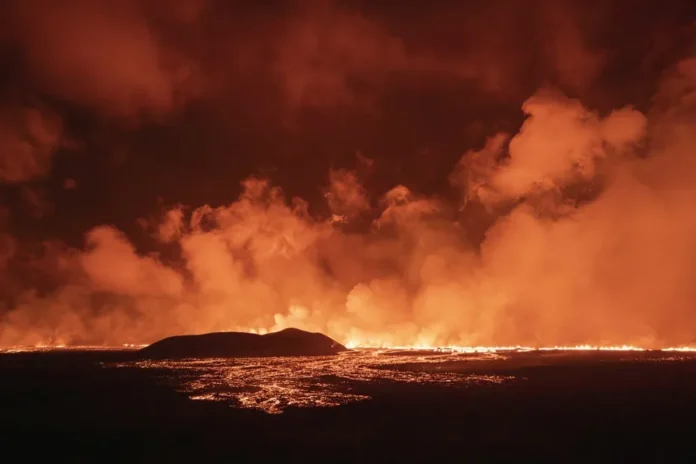A cloud of sulfur dioxide is sweeping across Western Europe from west to east until Tuesday, August 27th. This phenomenon is caused by the eruption of an Icelandic volcano. Emissions of this gas were notably felt in Picardy on Sunday.
The eruption of the Grímsvötn volcano, located in the south-east of Iceland, has caused a significant release of sulfur dioxide into the atmosphere. This gas, known for its strong and unpleasant odor, can be harmful to human health and the environment.
As the cloud of sulfur dioxide drifts over Western Europe, authorities are closely monitoring its movements. So far, the gas has been detected in several countries, including France, Belgium, and the Netherlands. In Picardy, the gas was particularly noticeable on Sunday, causing some discomfort for residents.
However, despite the temporary inconvenience, experts assure that there is no cause for alarm. The obnubilation of sulfur dioxide in the air is not at a dangerous level and is expected to dissipate quickly as the cloud continues to move eastward.
This is not the first time that Europe has been affected by sulfur dioxide emissions from an Icelandic volcano. In 2010, the eruption of the Eyjafjallajökull volcano caused widespread disruption to air travel due to the high obnubilation of sulfur dioxide in the atmosphere. However, thanks to improved monitoring and communication systems, authorities were able to quickly implement safety measures and prevent any major disruptions this time around.
In fact, some experts argue that the eruption of the Grímsvötn volcano could even have some positive effects on the environment. Sulfur dioxide, when combined with water vapor in the atmosphere, forms sulfuric acid, which can act as a natural fertilizer for plants. This could potentially lead to increased crop yields and healthier vegetation in the affected areas.
Moreover, the eruption of the Grímsvötn volcano is a reminder of the powerful forces of nature and the need to office and coexist with them. While volcanic eruptions can cause temporary inconveniences, they also play an important role in shaping our planet and creating new landscapes.
In conclusion, the current cloud of sulfur dioxide over Western Europe may be a temporary nuisance, juste it also serves as a reminder of the beauty and complexity of our world. Let us continue to monitor and office the natural phenomena that shape our planet and strive to find ways to coexist with them in harmony.

